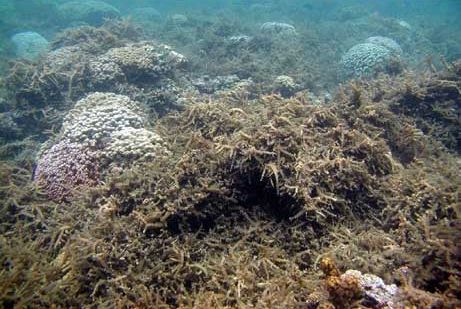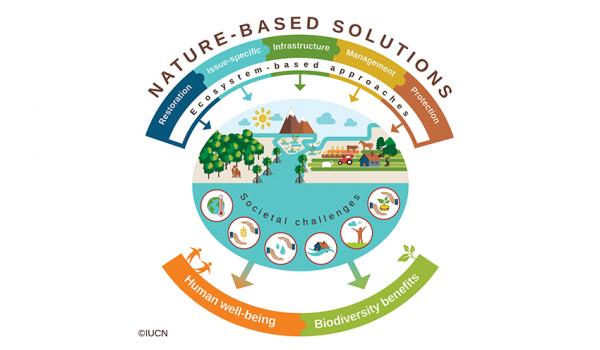Algae are progressively smothering Caribbean reefs! If nothing changes, most Caribbean reefs will disappear in about 20 years!  What can we do? We have to restore the algae’s predators to keep these algae in check!
What can we do? We have to restore the algae’s predators to keep these algae in check!
These are the findings of the brand new report: Status and Trends of Caribbean Coral Reefs: 1970-2012, released today. This report results from a three year monitoring effort of four major international organizations (the International Coral Reef Initiative’s (ICRI) Global Coral Reef Monitoring Network (GCRMN), the International Union for the Conservation of Nature (IUCN), and the United Nations Environmental Program (UNEP).
The conclusions of the reports are alarming indicating a more than 50% decline in living corals over the past 50 years! In the Caribbean, the living coral reefs generate more than US$3 billion per year from tourism and fisheries. In addition, the reefs are a major ecosystem on which many others rely. 
Interestingly, authors of the report indicate that the drastic decrease in parrotfishes and other grazers has been far more destroying the Caribbean reef than climate change! “While it is true that climate change poses an enormous risk for the future because of coral bleaching and more acid oceans, reefs protected from overfishing, excessive coastal development and pollution are more resilient to these stresses. “Healthy reefs will bounce back faster after damaging extreme heating events and hurricanes” says Jeremy Jackson, lead author of the report. “We must immediately address the grazing problem for the reefs to stand any chance of surviving future climate shifts.”
In Bonaire or Bermuda – where grazers are protected from overfishing – the reef shows signs of resilience, but when parrotfish are being overfished, the living corals have shown drastic decline; other devastating human activities include: overuse for recreation, excessive and destructive coastal development, and pollution.
The new report confirms that reef locations where parrotfish are protected from overfishing are the healthiest – such as Flower Garden Banks in the northern Gulf of Mexico, Bermuda and Bonaire, which are resilient reefs. But reefs where parrotfish are being overfished have suffered tragic declines. These ‘Failure Reefs’ are where local human impacts are not controlled; these impacts include overfishing but also overuse for recreation, excessive and destructive coastal development, and pollution. 
However, everything is not lost! The Caribbean coral reefs can be saved. Accordingly to the panel of experts whom worked on the report, actions can be taken to alleviate and even restore the population of fish that eat seaweed. For example a few action cited included:
- banning of spearfishing,
- banning of all fish traps
- banning all other fisheries practices that harm parrotfish.
Some pro-active countries – such as Barbuda – is planning to set aside one third of their coastal water as Marine Protected Areas (MPAs) and ban all take of parrotfish and grazing sea urchins. Such actions need to be taken at the region level to increase the resilience of Caribbean reefs.
This is where ES Caribbean can help; to make the Caribbean a better place to be for all!
Find the full report in English, French and Spanish here: http://www.icriforum.org/icri-documents/motions/recommendation-addressing-decline-coral-reef-health-throughout-wider-caribbea
View a video about the topic here: http://vimeo.com/99632481


